
Montserrat, a beautiful island in the Caribbean, is known for its stunning landscapes and vibrant culture. As visitors explore this tropical paradise, a common concern arises regarding the safety of drinking tap water. This leads to the crucial question: Is It Safe to Drink Tap Water in Montserrat?
Understanding the quality of tap water is essential for both tourists and residents alike. Factors such as local infrastructure, environmental conditions, and water treatment practices play a significant role in determining whether the tap water is safe to consume. In this article, we will delve into these aspects to provide clarity on this important topic.
Is Tap Water in Montserrat Safe to Drink? A Comprehensive Guide
When considering the safety of tap water in Montserrat, it's essential to know that the local government conducts regular tests to ensure water quality. The island's water supply is primarily sourced from rainwater harvesting and groundwater. As a result, these sources usually yield water that is both clean and safe for consumption, provided that the infrastructure remains well-maintained.
However, certain factors can influence water safety. It's advisable to be aware of:
- Seasonal rainfall patterns that may affect water quality.
- Infrastructure issues that could lead to contamination.
- Recommendations from local health authorities on water usage.
Visitors to Montserrat should also consider that while tap water is generally safe, bottled water remains a popular choice due to personal preferences and the convenience it offers. Many travelers opt for bottled water during their stay, especially in areas where tap water quality is uncertain or during transitional periods of heavy rainfall.
In summary, tap water in Montserrat is typically safe to drink, but it’s wise to remain informed about local conditions and heed any advisories from health officials. By doing so, both residents and tourists can enjoy the island's beautiful environment without concerns about water safety.
Understanding the Water Quality Standards in Montserrat
In Montserrat, understanding the water quality standards is vital for both locals and visitors. The island adheres to regulations set by health authorities that aim to ensure safe drinking water. These standards are based on international guidelines, which help monitor contaminants and maintain acceptable levels of substances in the water supply.
The key parameters evaluated in Montserrat's water quality assessments include:
- Bacterial contamination</—measured through tests for E. coli and total coliforms.
- Chemical pollutants—such as heavy metals and nitrates, which can affect health when present in high concentrations.
- Physical characteristics—including turbidity and color, which are indicators of overall water quality.
Regular sampling and testing are conducted throughout the year, especially during the rainy season when runoff may introduce additional contaminants. The government publishes these results, ensuring transparency and informing residents and tourists about the current state of tap water quality.
Moreover, community awareness campaigns play a crucial role in educating the public about water safety. Residents are encouraged to report any unusual changes in water appearance or taste, which can be indicative of potential issues. By staying informed and proactive, the community can help maintain the high standards of water quality in Montserrat.
Potential Contaminants in Montserrat's Tap Water
Potential contaminants in Montserrat's tap water can arise from various sources, affecting its safety for consumption. While the overall quality is generally good, it is essential to remain vigilant about these risks. Common contaminants include:
- Microbial pathogens—Bacteria such as E. coli and viruses that may enter the water supply through runoff or inadequate sanitation.
- Chemical residues—Agricultural runoff can introduce pesticides and fertilizers into the water system.
- Heavy metals—Sources like corroded pipes can leach metals such as lead and copper into the water supply.
Monitoring efforts are in place to detect these potential contaminants promptly. The local government conducts regular assessments to identify any fluctuations in water quality. Testing typically focuses on key indicators, including:
- Presence of pathogens—Evaluating the microbial load to ensure safe drinking conditions.
- Concentration of nutrients—Measuring nitrates and phosphates that can signal pollution.
- Presence of heavy metals—Assessing levels of harmful substances that may pose health risks.
In addition to regular testing, community education plays a vital role in addressing potential water quality issues. Residents are encouraged to be proactive by:
- Reporting any unusual changes in tap water appearance, taste, or odor.
- Participating in local health initiatives aimed at promoting safe water practices.
- Staying informed about seasonal variations that may affect water quality.
By understanding these potential contaminants and remaining engaged, both residents and visitors to Montserrat can contribute to maintaining high standards of water safety. This collaborative effort ensures that the tap water remains a safe and reliable resource for everyone on the island.
Health Benefits of Drinking Clean Water in Montserrat
Drinking clean water in Montserrat offers numerous health benefits that are essential for maintaining overall wellness. Proper hydration supports vital bodily functions, including digestion, circulation, and temperature regulation. In an island environment, staying hydrated is particularly important, as the warm climate can lead to increased fluid loss through perspiration.
Moreover, access to safe drinking water helps in reducing the risk of waterborne diseases. By consuming clean tap water, residents and visitors can minimize exposure to harmful pathogens and contaminants, which can lead to gastrointestinal issues and other health complications. Preventing these illnesses is crucial for maintaining a healthy lifestyle while enjoying the beauty of Montserrat.
Additionally, drinking clean water contributes to better skin health. Adequate hydration helps to keep the skin supple and vibrant, reducing the appearance of dryness and promoting a youthful complexion. With the stunning backdrop of Montserrat, visitors may want to ensure their skin looks its best while exploring the island.
Lastly, drinking clean water can enhance cognitive function and energy levels. Staying hydrated supports mental clarity and focus, which is especially beneficial for those engaging in outdoor activities or exploring the island's natural attractions. Thus, prioritizing access to clean tap water can lead to a more enjoyable and active experience in Montserrat.
Comparing Tap Water and Bottled Water in Montserrat
When comparing tap water and bottled water in Montserrat, several factors come into play. Tap water is sourced primarily from rainwater and is treated according to local health standards, making it generally safe for consumption. In contrast, bottled water often undergoes additional filtration and purification processes, which some consumers may prefer for peace of mind, especially in areas with seasonal rainfall fluctuations that could affect tap water quality.
Cost is another important consideration. While tap water is essentially free for residents and visitors, buying bottled water can lead to significant expenses over time. Additionally, the environmental impact of plastic waste from bottled water can be a concern for eco-conscious travelers. Therefore, choosing tap water can be a more sustainable option, provided that its safety is assured through regular testing and maintenance.
Convenience also plays a role in this comparison. Tourists may find it easier to carry bottled water while exploring Montserrat's beautiful landscapes. However, many local restaurants and accommodations offer tap water to guests, encouraging them to drink locally sourced water. It's essential for travelers to stay informed about the local water quality to make the best choice for their hydration needs.
In summary, while both tap water and bottled water have their advantages, the decision largely depends on individual preferences and circumstances. Understanding the safety protocols surrounding tap water in Montserrat can help visitors feel confident about their choice, allowing them to enjoy the island's offerings without concern.
Tips for Staying Hydrated Safely in Montserrat
Staying hydrated while exploring Montserrat can be an enjoyable experience if you take the right precautions. To ensure safe hydration, consider drinking from trusted sources. Always opt for bottled water from reputable brands, especially if you are in an unfamiliar area. This practice is especially useful during heavy rainfall periods, when tap water quality may fluctuate.
Another excellent way to stay hydrated is to carry a reusable water bottle filled with filtered water. This not only helps reduce plastic waste but also allows you to refill whenever needed. Be sure to bring your bottle to local eateries, as many establishments provide free tap water upon request, giving you a great balance between sustainability and hydration.
It’s important to be mindful of hydration needs based on outdoor activities. If you're hiking or engaging in sports, increase your water intake to compensate for fluid loss due to perspiration. Remember to pack electrolyte-rich drinks as well, as they can help replenish essential minerals lost during physical activities, keeping you energized throughout your adventures.
Lastly, pay attention to your body's signals. Thirst is a clear indicator, but also look out for signs of dehydration such as dizziness or dry mouth. Maintaining a consistent hydration routine not only keeps you feeling good but also enhances your overall enjoyment of Montserrat's breathtaking landscapes and vibrant culture.
 Exploring Montserrat Monastery: Can You Drive to this Scenic Wonder?
Exploring Montserrat Monastery: Can You Drive to this Scenic Wonder?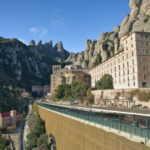 Exploring Montserrat: Can You Drive to the Top of the Mountain?
Exploring Montserrat: Can You Drive to the Top of the Mountain? Discover the Picturesque Montserrat: Can You Reach It by Car?
Discover the Picturesque Montserrat: Can You Reach It by Car?If you want to know other articles similar to Is It Safe to Drink Tap Water in Montserrat? you can visit the category WHERE YOU CAN GO.
Leave a Reply

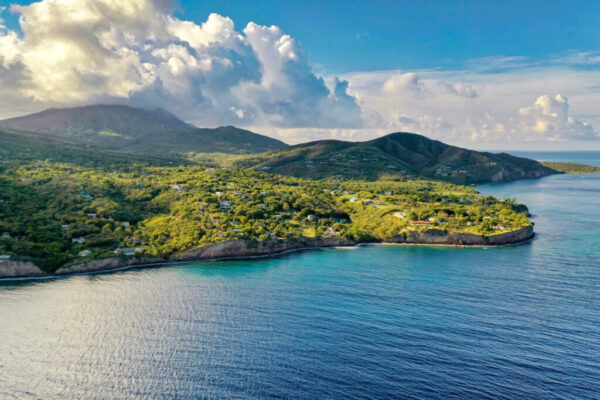

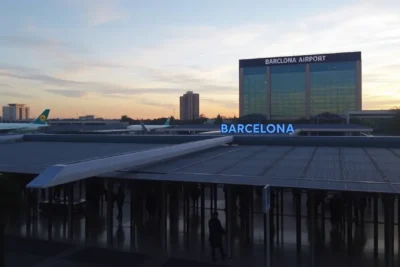
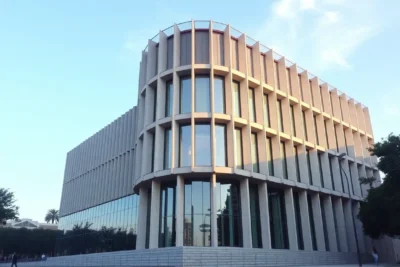
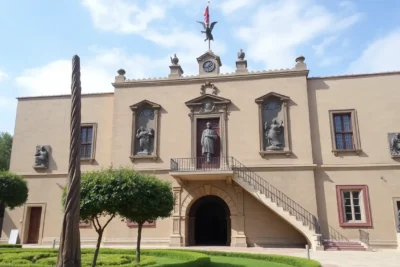
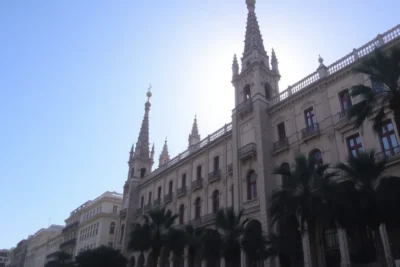

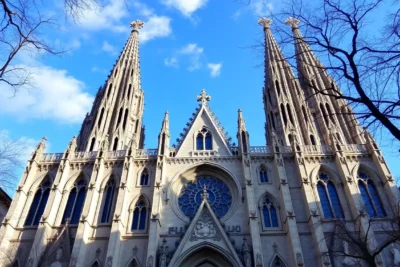
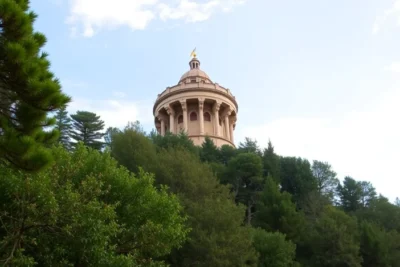
Read more!